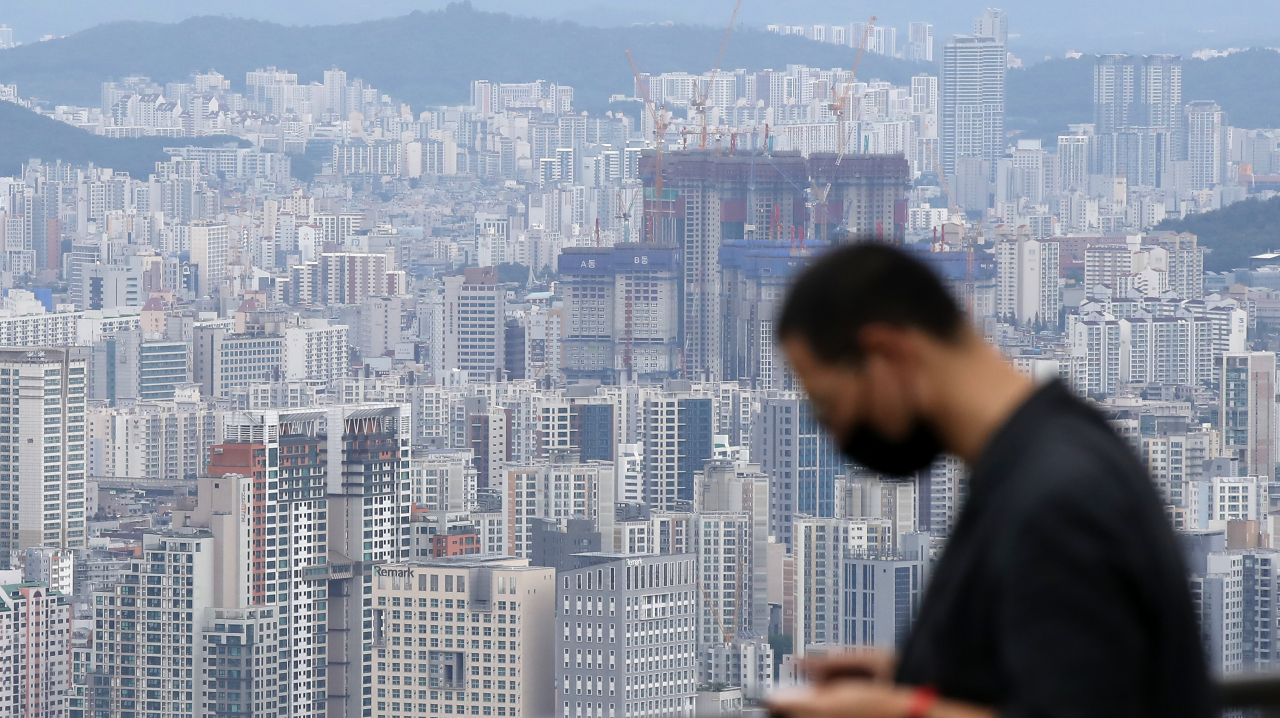 |
Aerial view of apartment complexes in central Seoul (Yonhap) |
Demand for apartments in South Korea’s capital and the surrounding areas continued to rise for two consecutive weeks, despite the central bank’s latest rate hike and financial institutions’ efforts to cut back lending, data showed Friday.
According to the Korea Real Estate Board, the index measuring supply and demand for apartments in Seoul and the surrounding area inched up 0.4 points on-week to 112.1 as of Monday, extending gains for two consecutive weeks. It had gained 0.9 point on-week to 111.7 the previous week. When the index is higher than 100, there are more buyers than sellers.
The Bank of Korea carried out its first pandemic-era rate hike Aug. 26, raising the key rate 25 basis points to 0.75 percent in hopes of reining in the nation’s snowballing household debt. Commercial banks have either suspended or severely curtailed mortgage lending since last month to put the brakes on debt growth.
Nationwide, the supply and demand index also gained for two consecutive weeks, inching up 0.3 percent on-week to 108.4 as of Monday.
The supply and demand index for “jeonse” deals in Seoul also gained 0.7 points on-week to 106, despite continued high costs. Jeonse is a rental system where the tenant hands over a large lump sum to the landlord -- on average, about 65 percent of the value of the property -- and does not pay rent. The deposit is returned to the tenant at the end of the contract, usually after two years.
The average jeonse deposit in Gangnam-gu, a well-known affluent area of Seoul, has jumped 58 percent since the Moon Jae-in administration took power in May 2017, data compiled by real estate data platform 10,000-lab showed earlier this month. The average jeonse deposit for an apartment in the area jumped by some 58 percent to 40.2 million won ($34,413) per 3.3 square meters as of August, compared with 25.3 million won in May 2017, according to the same data.
Korea has been facing a jeonse shortage in recent months, with homeowners cautious about signing jeonse contracts in the first place and preferring monthly rent now that tenant protection laws have taken effect. The laws allow a jeonse contract to be automatically extended once if the tenant so chooses, and homeowners cannot raise the deposit more than 5 percent at the time of automatic renewal.
By Jung Min-kyung (
mkjung@heraldcorp.com)








